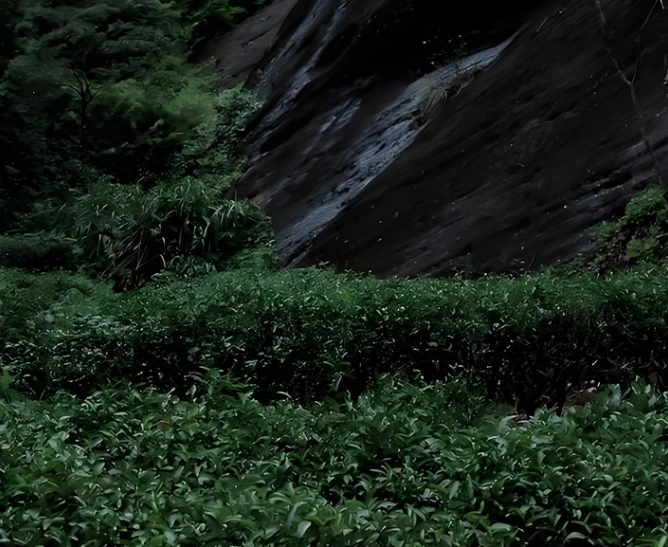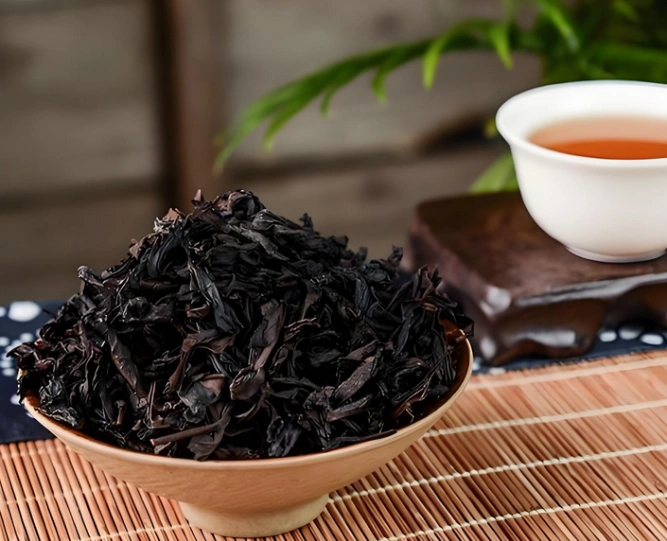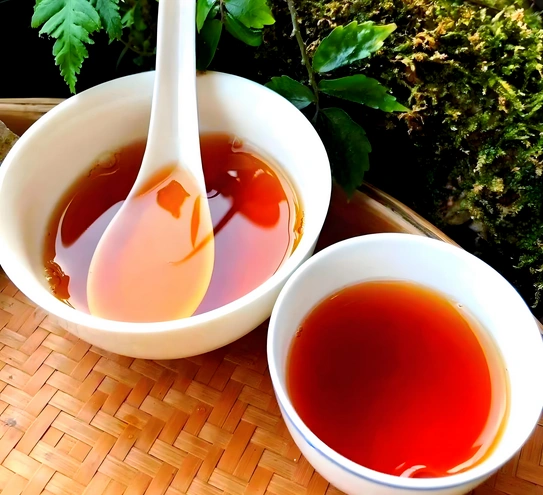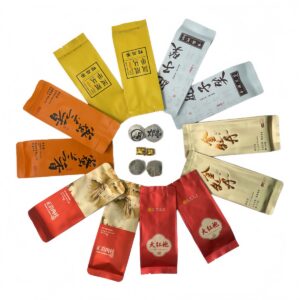Oolong tea vs black tea stands as one of the most captivating debates among tea lovers today. Both crafted from the leaves of Camellia sinensis, these two teas diverge in processing, flavor, and even their health-boosting compounds. In this journey, we’ll explore how oolong tea vs black tea can influence your sense of taste, your energy levels, and your overall well‑being. From the first steam-kissed sip to the lingering finish, you’ll discover why choosing between these teas is less about right or wrong and more about the exact mood and moment you seek.
1. Oxidation & Craft: Where Oolong Meets Black
At the heart of oolong tea vs black tea lies oxidation. Picture tea leaves like painter’s canvas: the more they oxidize, the deeper and richer the hues and flavors become.
- Oolong tea: Partially oxidized (roughly 10–80%), giving it a complex spectrum of aromas, from floral and fruity to lightly roasted.
- Black tea: Fully oxidized (100%), yielding robust, malty, sometimes chocolaty notes that stand bold and unmissable.
Imagine holding a semi-translucent amber cup of oolong, its bouquet evoking orchids in bloom. Now contrast that with a deep garnet pour of black tea, offering warming spices and sweet malt. This contrast defines oolong tea vs black tea at its core—two worlds born from the same leaf.

2. Flavor Profiles: Delicate Layers vs Bold Statements
When tasting oolong tea vs black tea, your palate embarks on very different adventures:
- Oolong’s Symphony
- Aroma: Whispers of orchid, honey, ripe peach, or roasted chestnut.
- Body: Medium-light, with a silky mouthfeel and a sweet, lingering finish.
- Mood: Perfect for mindful sipping, a gentle hug in a cup.
- Black Tea’s Boldness
- Aroma: Rich malt, cocoa, sometimes hints of stone fruit or spice.
- Body: Full-bodied and brisk, coating the tongue with warmth.
- Mood: Ideal when you need an invigorating pick-me-up.
Whether you crave oolong tea vs black tea, consider your moment: a plume of floral elegance or a surge of malty strength.
3. Caffeine Content: Wakeful Warmth vs Gentle Lift
A key dimension of oolong tea vs black tea is caffeine:
| Tea Type | Caffeine per 8 oz Cup |
|---|---|
| Oolong Tea | 30–50 mg |
| Black Tea | 40–70 mg |
Oolong’s moderate caffeine offers a balanced lift—enough to clear away brain fog, yet gentle enough for late-afternoon sipping. Black tea, with its higher range, can rival a mild coffee in alertness. If you’re sensitive to caffeine, oolong tea vs black tea will steer you toward oolong’s softer embrace; coffee lovers craving a tea-based buzz may gravitate to black tea’s robust energy.
4. Health Benefits Showdown
Oolong Tea Benefits
- Metabolism & Weight Management
Studies show that daily oolong consumption can boost fat oxidation and support weight loss. In one randomized trial, participants who drank 4 cups of oolong daily for six weeks saw significantly greater fat loss than those who didn’t【1】. - Blood Sugar Balance
Polyphenols in oolong may help modulate blood sugar, making it a gentle ally after carbohydrate-rich meals.
“A six‑week study published in the Journal of Nutritional Science found oolong tea improved fat metabolism by 12%.”
Read the study →【1】
Black Tea Benefits
- Heart Health & Cholesterol
Regular black tea drinkers often enjoy better heart markers. A cohort study found that six cups of black tea per day correlated with a modest 5% reduction in LDL cholesterol and improved arterial function. - Gut Comfort
The theaflavins and thearubigins in black tea support healthy gut microbiota, easing mild digestive discomfort.
“Research in Nutrition Journal reports black tea consumption lowered LDL cholesterol by 4.5% over eight weeks.”
By weighing oolong tea vs black tea, you choose which health perks align best with your wellness goals.

5. Best Oolong Tea Picks: Elevate Your Cup
- Tanbiwencha Eight Immortals Phoenix Dan Cong Oolong – Celebrate the mythical Eight Immortals with this Phoenix Dan Cong, bursting with layers of orchid, honey, and subtle fruit sweetness. Perfect for a meditative post‑meal moment.
Shop now → - Tanbiwencha Da Hong Pao Wuyi Rock Tea (Vintage ’90s) – Aged rock tea with deep mineral notes and smooth roast, ideal for slow, contemplative evenings.
Shop now → - Tanbiwencha Rougui Wuyi Rock Oolong – Crafted from Wuyi’s famed Rougui cultivar, this tea offers a warm cinnamon‑like spice and roasted cocoa notes, ideal for winding down after dinner.
Shop now →
6. A Light Note on White Tea
While focused on oolong tea vs black tea, don’t overlook white tea’s delicate allure. With minimal processing and ultra-low caffeine (< 15 mg per cup), white tea offers subtle floral notes that make it a gentle palate cleanser before transitioning to bolder brews.
7. Brewing Brilliance: Steep to Perfection
Mastering oolong tea vs black tea at home means dialing in the details:
- Oolong Tea
- Water: 195–205 °F (90–96 °C)
- Leaves: 2–3 g per 8 oz
- Steep: 1–3 min (light oolongs shorter; darker oolongs longer)
- Infusions: 3–5 times, each unveiling new layers.
- Black Tea
- Water: 205–212 °F (96–100 °C)
- Leaves: 2 g per 8 oz
- Steep: 3–5 min for full body.
Pro tip: Rinse oolong leaves quickly with hot water to rouse fragrance, then brew. For black tea, use freshly boiled water and cover your cup or teapot for the full steep.

8. Conclusion: Your Choice in the Ceremony
The story of oolong tea vs black tea is one of nuance and personal preference. Oolong invites you to savor layered aromas and gentle vitality, while black tea rallies your senses with hearty warmth and robust spirit. Both carry remarkable health benefits—metabolic support, heart care, and digestive comfort—so let your mood and your body lead the way.
Tonight, when you reach for a teapot, ask yourself: Am I in the mood for the graceful complexity of oolong, or the bold confidence of black? Whichever path you choose, may each cup be an invitation to slow down, breathe in deep, and toast to the simple pleasure of a well‑crafted brew.



